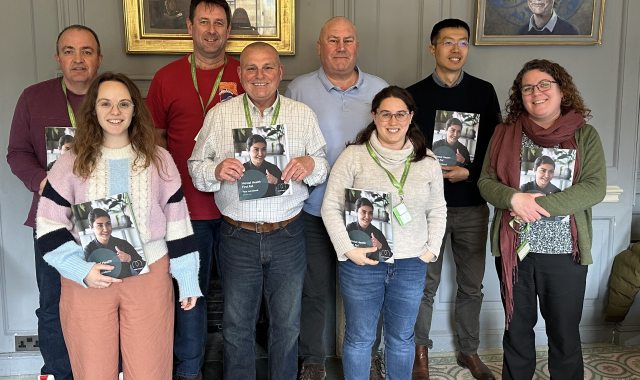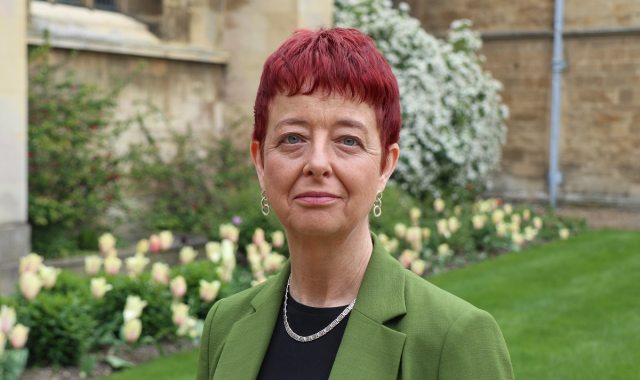How a trip to your Grandparents’ shed can lead to becoming the winner of a Gonville & Caius School Prize
- 25 September 2020
- 4 minutes
Kate Lucas, the winner of the 2020 History Challenge found inspiration for an object biography in her Grandparent’s shed in Dunnington, North Yorkshire. Lying there in a rusty state were a pair of hand irons, c1900 which she used as a springboard to research about life during her Great Grandmother’s time.
This year we received over 300 entries for our challenges, a record number of entries. Our 2020 challenges were set in Engineering, History, Linguistics, Modern Languages and Natural Sciences. Our challenges touched on issues facing the world today and encouraged entrants to think in innovative directions about their subjects. Five in particular impressed our panel of judges and these lower sixth form students won first place for each of the challenges: Kate Lucas (History), Rosabel Thorne (Linguistics), Miles Balderson (Engineering), Nandana Mahtani (Modern Languages) and Adam Wajed (Natural Sciences).
The motivation to enter the competition varied between our winners. “I thought it was a really interesting approach to history. When I was looking at examples, I found that most of them seemed to be of objects in museums. My grandparent's shed was a world away from the Bodleian or the British Library, but I thought it might bring a different perspective - often when we study history we focus on a few elite figures, but I always wonder what the other 99% of the population was doing,” said Kate Lucas. Adam Wajed noted that he had “always been interested in seeing how different systems work and how they could be explained.” He said, “After seeing the competition question and the broad opportunities it offered, I thought I would enjoy exploring an area of Physics I was not familiar with.”
The Challenges also gave students the chance to explore interesting topics during a period of educational disruption. “Writing and researching made the long lockdown days a little less boring and provided a sense of purpose. Trying to understand someone else's world, I think, made it a little easier to try and understand this strange new world we're living in now thanks to coronavirus.” (Kate Lucas). Several of our other entrants also noted that the Challenges had given them something interesting to focus upon during a very difficult and unusual time.
The criteria for our prizes are deliberately innovative and accessible to allow students to explore their own ideas and thoughts. The sixthformers appreciated this flexibility saying, “[Entering the competition] allowed me to write an essay on a fairly offbeat animated film, and in doing so I was prompted to further explore the genre of magical realism in both French film and literature alike.” (Nandana Mahtana). Miles Balderson also reflected upon the experience saying, “The opportunity to complete this research task was a great intellectual challenge, especially as I was researching an area that was outside of my studies.” Another prizewinner noted, “The process of entering the competition, from choosing an artefact to doing research around it, enabled me to think critically about objects. I think its good practice for everyone with an interest in history to look critically at objects - whether special or everyday ones - because they are a testament to their society's practical, spiritual, and aesthetic standards” (Irina Husti-Radulet).
Many students noted that taking part in the competition has given insight into new topics or styles of research, which have shaped their thinking. For example Nandana Mahtani explained that the “research for this essay opened my eyes to an entire world of contemporary French literature and film that I perhaps didn't know as much about before.” Shivani Dawson, a second place-winner for Natural Sciences commented, “I'm so thankful for the opportunity as it's forced me out of my comfort zone in terms of my interests. I had never explored or researched Earth Sciences prior to the competition, but now have a deep-seated fascination for it and hope to pursue it at university.”
Thank you to everyone who entered this year’s competition and congratulations to the winners.
History
Kate Lucas (1st place)
Nivea Makinde (2nd place)
Edwyn Wilson-Verrall (3rd place)
Irina Husti-Radulet (4th place)
Linguistics
Rosabel Thorne (1st place)
Polly Shorrock (2nd place)
Modern Languages
Nandana Mahtani (1st place)
Madeline Pritchard (2nd place)
Engineering
Miles Balderson (1st place)
Sustainable Transport Report 2050 (joint 2nd place)
Rosalyn Delap (joint 2nd place)
Natural Sciences
Adam Wajed (1st place)
Shivani Dawson (joint 2nd place)
Zahra Lalani (joint 2nd place)


